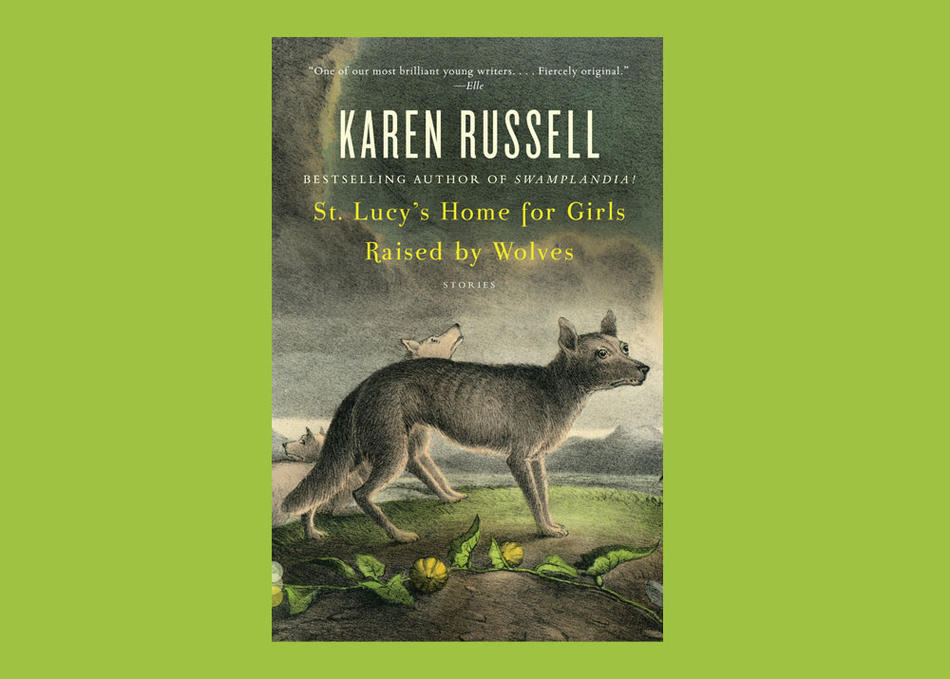At no other time are you as much a product of your environment as you are in childhood, and adolescence is when you first emerge from it — in a case of adapt or perish. Writer Karen Russell’s own upbringing in the Florida Everglades is inspiration for her debut collection of stories, St. Lucy’s Home for Girls Raised by Wolves, which fantastically depicts young characters so particular to the region they seem to have crawled out of a primordial swamp. There is 12-year-old Ava who takes watch of her family’s gator theme park and her older sister’s sexual awakening. At a sleep-away camp for disordered dreamers, young Elijah spends his muggy summer foretelling disasters that he was unaware have already happened, such as Mount Vesuvius and the Bubonic Plague. And in the title story, Claudette and her lupine-reared schoolmates learn the finer points of human posture and manners from Sister Maria de la Guardia. Russell vividly depicts the swamp’s penumbral atmosphere and the adventures it inspires.
As a collection of first-person narratives, St. Lucy’s Home is necessarily about adolescent storytelling, how teenagers see and explain their world. Coming-of-age tales often depict adolescence as a kind of postcolonial country, where its citizens grapple to emerge from parental authority and insularity. Most preteens are unsure what to make of their newly granted independence: Do they follow their parents’ modeling and beliefs or do they make their own? In “Ava Wrestles the Alligator,” Ava’s decision is further complicated by her mother’s death, which at once cuts the umbilical cord and adds the burden of having to help run the family business. Ava ends up taking the middle path: following the lead of her older teen sister. Because she can’t fully shake her family’s demands, Ava does more furtive observing than mimicking of her sister’s grasping sexuality: “Her boyfriends possess her in a different way. They steal over her, silking into her ears and mouth and lungs, stealthy and pervasive, like sickness or swallowed water. I watch her metamorphosis in guilty, greedy increments.” Russell has a gift for arresting similes, adeptly depicting Ava’s simultaneous fascination and repulsion. Ava speaks with an adult eloquence, but the reader believes it because Ava’s conflicted reaction seems so appropriate for her age.
Yet when Ava tries to recapitulate the scene’s gravity, with a facility beyond her years, it jolts the reader’s suspension of disbelief. “And I get that peculiar knot of fear and wonder and anger, the husk that holds my childhood.” Ava’s perspective is too distant and self-aware, clearly more Russell’s voice than the character’s. This occurs in other stories in the collection, and while it’s difficult to fully ignore, it doesn’t prohibit the reader from appreciating Russell’s insights and exuberant writing.
At 25, Russell is evoking fantastical worlds, in which the day-to-day challenges of childhood are imaginatively explored. One hopes that in the next world she conjures, she’ll let her characters do all the talking.



